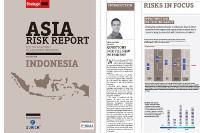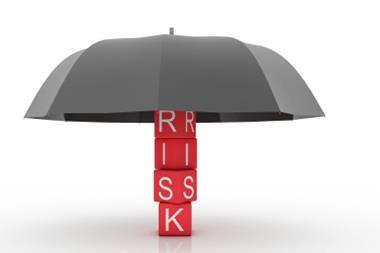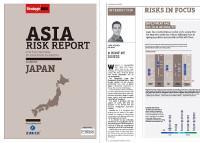As various Asian countries introduce legal changes to regulate the business world, the take-up for insurance has increased greatly

The tidal wave of economic transformation across Asia will exert a profound influence in the boardroom, as India’s new Companies Act 2013 is already showing. Nothing if not comprehensive, the law is being introduced in stages, but it is already clear the statute will transform the nature of responsibilities in the upper levels of all domestic and international companies.
According to veterans of the Indian business scene, the main lesson foreign companies must take from the Act is that the rights of shareholders are now supreme under law. For example, directors will for the first time be exposed to class action suits in a game-changing democratisation of shareholder rights.
Predictably, the reform has precipitated a scramble for insurance. India has long been a laggard in directors’ and officers’ (D&O) coverage but, galvanised by the implicit risks embedded in the Act, its boardrooms are catching up fast. (Currently only about 10% of companies have D&O cover, according to Mumbai-based Abi Malkan, a research analyst in JLT Wealth Management’s financial risks division.) Another catalyst is the Bombay Stock Exchange, which will soon require all listed companies to buy insurance for its directors.
Anticipating the trend, Tata Steel recently took out global cover of $160m with Indian insurers. Other leading companies have responded by insuring their senior officers for up to $100m.
A big shake-up
In general, the legislation has shaken up boardrooms. “Several boards have revisited their D&O programme limits and coverage,” explains Manoj As, head financial lines, Tata AIG General Insurance Co Ltd. “We are also seeing a change in buying behaviour by senior management.”
The trigger for the change of attitude is that regulators are now entitled to invoke measurable provisions under which directors’ duties are clearly defined. Prosecution will be more effective and timely. Further boosting demand for D&O cover, penal provisions are stringent, with higher fines, penalties and imprisonment.
The trend towards western-style civil actions is developing. Alleging racial discrimination, sexual harassment and unfair dismissal, these claims have almost overnight exposed directors to the ire of regulators, shareholders, creditors and employees.
“Recently, Indian firms saw as many as 340 independent directors resigning from their positions, fearing their reputation might be at stake if the company failed to live up to investor expectations,” notes Malkan. The independent directors see themselves as being particularly vulnerable because many sit on a number of boards that are active in different sectors of commerce.
The growing demand for D&O cover is an Asia wide phenomenon. Although precise figures are elusive, the insurance industry estimates the continent’s D&O market at more than $400m, with Hong Kong and Singapore being the hot spots. But like India, Malaysia is also catching up fast after the central bank – Bank Negara Malaysia – introduced last year a 600- page regulatory package that not only gives it much stronger supervisory powers over the financial sector, but also places a heavier burden of responsibility on directors.
By no means least, Malaysia’s new regulations greatly extend the likelihood of imprisonment for misdemeanours. But, instead of only directors, chief executives and senior management facing time in Kajang prison for serious illegalities, any individual involved in the chain of decision making leading up to an offence may also be imprisoned.
A sign of the times
Moreover, the central bank has given itself the power to take civil action on behalf of any corporation or individual it believes has a legitimate grievance. The regulations also affect the boardroom in the hip pocket – directors will be liable for restitution for loss or damage caused by an offence committed by an employee.
Although Malaysia’s regulations concern only the financial sector, that may change. Many observers believe it is only a question of time before they are extended across the entire commercial sector in what is undoubtedly a sign of the times.




















No comments yet